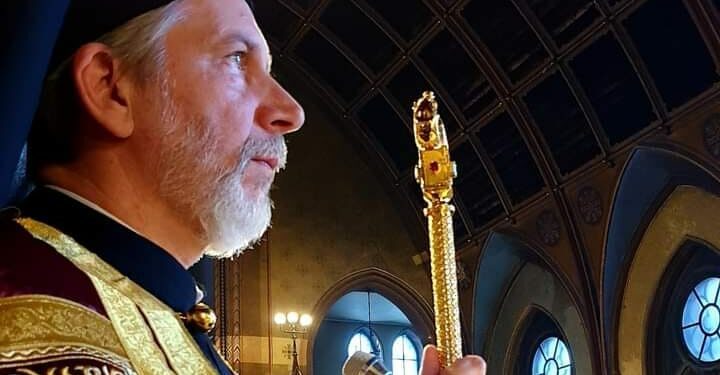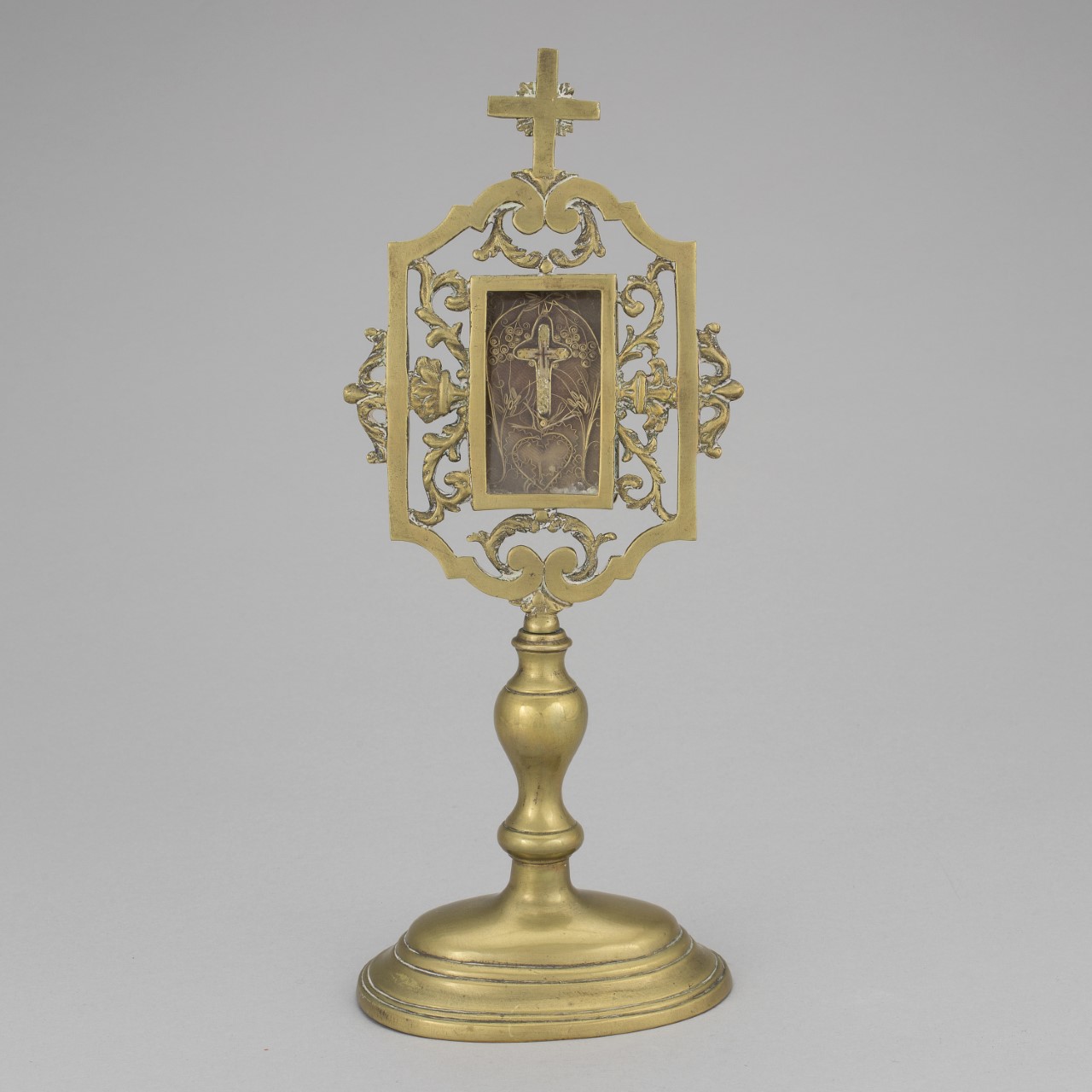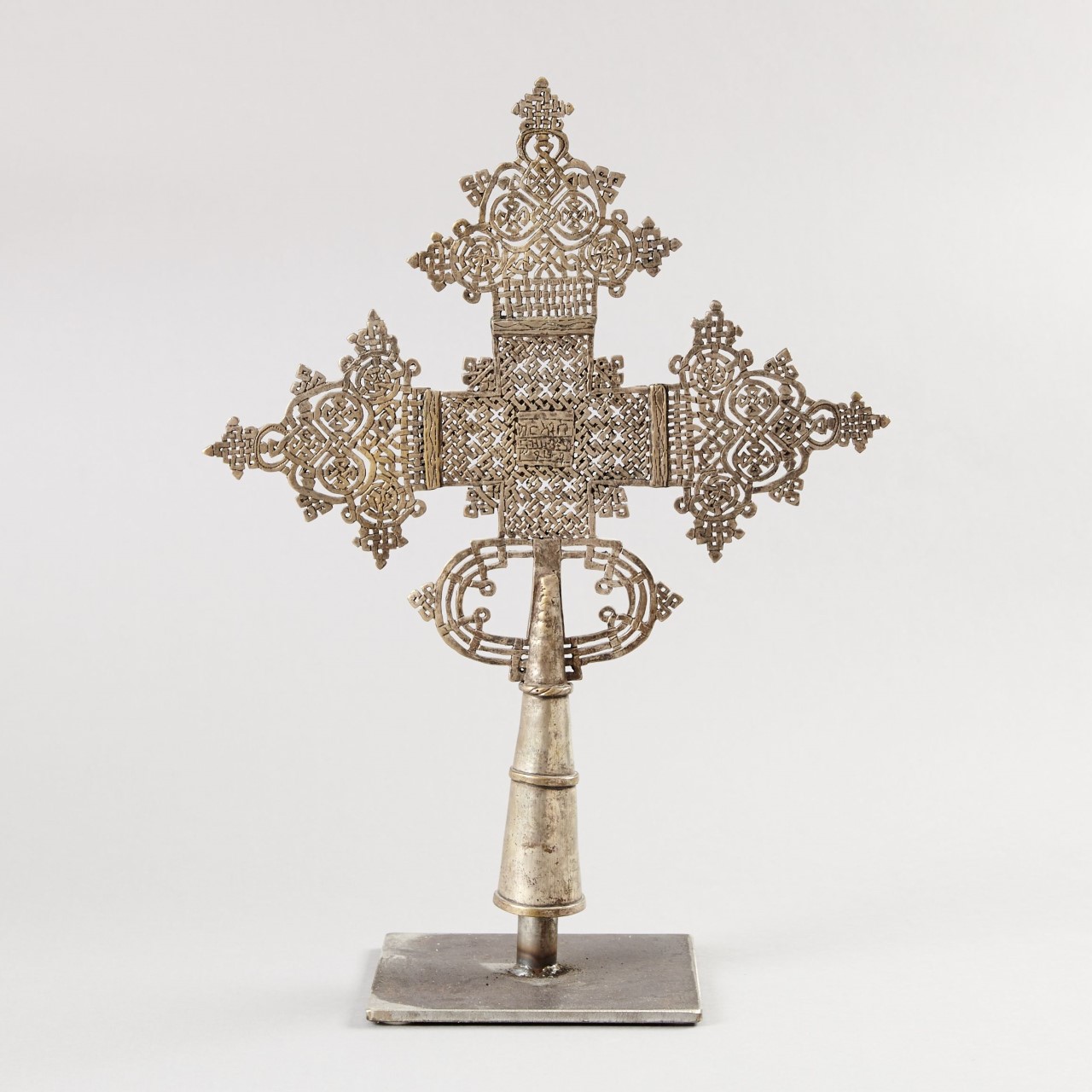Metropolitan of Sweden: Our Saviour Jesus Christ Himself, Who went up on the Cross, calls us to a life and freedom and love


Metropolitan Cleopas of Sweden and All Scandinavia spoke about the upcoming feast of the Exaltation of the Holy Cross.
In view of the Feast, Metropolitan Cleopas said that “One of the hymns in today’s feast calls upon all of us – clergy and laity alike – to venerate the Holy Cross with joy and fear. Relying on these two internal states, which appear to be opposites at first glance, the sacred hymnographer of the Church invites us to stand before our Lord’s Cross with feelings of elation and awe”.
Afterwards, he pointed out that “Our mortal mind cannot interpret the mystery of the Incarnate Logos’ sacrifice, just as it cannot comprehend His kenosis or self-emptying as we term it in English, and His humility. Therefore, the only way to approach this singular event of Divine condescension and love is through fear and joy.”
Finally, Metropolitan Cleopas highlighted that “Fear and joy reveal the deeper meaning of the mystery of the Cross, which symbolizes the concept of χαρμολύπη, which can be loosely translated to mean sweet sorrow or happiness intermingled with sadness. It refers to the spiritual condition that reflects or should reflect the permanent ethos of the Orthodox Christian mentality and Orthodox Christian truth. Let us not forget that the Cross holds a prominent position in the life and faith of Orthodox Christians. It is depicted in our iconography, it is showcased in our churches, and it is formed by the faithful everywhere during prayer.”
Read below the entire sermon of Metropolitan Cleopas
“Beloved Brothers and Sisters in Christ,
We gathered today, on this most solemn and radiant feast day of our Lord commemorating the Universal Exaltation of the Holy and Lifegiving Cross, so that we may jointly confess our common faith in Christ the Life-giver, and partake of the Cup of life. On today’s feast, the Church invites us to venerate the Holy Cross, as the faithful did during the time of St. Helen, who discovered it, and with the guidance of Patriarch Macarios, identified it so it could be exalted before the people, who gathered to venerate it.
One of the hymns in today’s feast calls upon all of us – clergy and laity alike – to venerate the Holy Cross with joy and fear. Relying on these two internal states, which appear to be opposites at first glance, the sacred hymnographer of the Church invites us to stand before our Lord’s Cross with feelings of elation and awe.
Turning our attention back to aforementioned hymn, the hymnographer calls upon us to approach the Holy Cross with awe, because it was upon this instrument of punishment, which was thought to be shameful during that era, that Christ the God-man, Who is without sin, willingly affixed Himself and suffered the most anguishing and humiliating of condemnations so that He could wash away our sins. He willingly accepted to endure this deep pain, which was the end result and consequence of human failure.
The Passion of our just and forbearing Lord, which He voluntarily endured for the salvation of mankind, naturally evokes a sense of fear. Our mortal mind cannot interpret the mystery of the Incarnate Logos’ sacrifice, just as it cannot comprehend His kenosis or self-emptying as we term it in English, and His humility. Therefore, the only way to approach this singular event of Divine condescension and love is through fear and joy.
One medium that aids us in understanding Christ’s awesome contribution and gift to all humanity is today’s festal hymns, as well as the prescribed fast, which resembles that of Good Friday. In this manner, the appropriate climate is created to enable the faithful to come to the realization that Christ’s voluntary sacrifice of Himself is no ordinary event, nor can it be explained in human terms.
My dear brethren, fear and joy reveal the deeper meaning of the mystery of the Cross, which symbolizes the concept of χαρμολύπη, which can be loosely translated to mean sweet sorrow or happiness intermingled with sadness. It refers to the spiritual condition that reflects or should reflect the permanent ethos of the Orthodox Christian mentality and Orthodox Christian truth. Let us not forget that the Cross holds a prominent position in the life and faith of Orthodox Christians. It is depicted in our iconography, it is showcased in our churches, and it is formed by the faithful everywhere during prayer.
The frequent act of crossing of ourselves throughout all our worship services is not something we do mechanically, nor is it devoid of substance. On the contrary, it expresses the two internal states that every faithful Christian is experiencing or should be experiencing. Χαρμολύπη is our ethos, our life.
St. Silouan would say that the Cross of the Lord grants hope and the ability to overcome the hell of failure, because it opens up prospects for us to observe life and experience it, overcoming hell and Hades.
I express the humble wish that we may all derive spiritual joy from today’s feast, since we all confess that: “behold, through the Cross joy has come to the entire world.” Let us all boast in Christ, as St. Paul the Apostle did: “but God forbid that I should boast except in the cross of our Lord Jesus Christ” (Gal. 6:14).
This is a boast that is made not with sentiments of egotism and pride over being superior to others, but because our Savior Jesus Christ Himself, Who went up on the Cross, calls us to a life and freedom and love. As we venerate the Holy Cross, let us reiterate the words of the sacred hymnographer, crying out: “O Cross of Christ, save us through your power!” Amen.”









